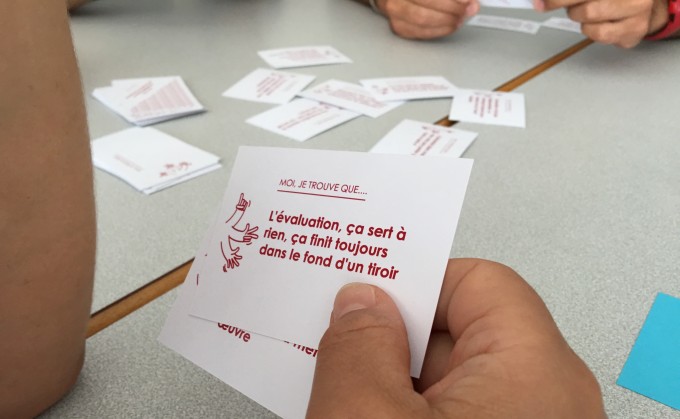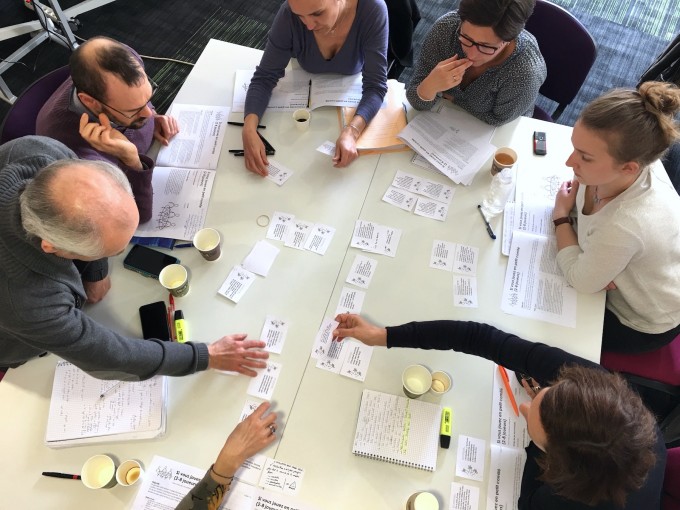Evalophobia in English
THE AIM OF THE GAME
The objective of this game isn’t to earn the most points or cards or to eliminate the other players by the end of the game. What’s the point of the game, then, you might ask? The goal is to start a conversation about public policy and project evaluation, regarding all the good reasons why you’ve never done it, to understand why it’s sometimes so complicated, and to think about the solutions that might help. It’s also a great way to jump into evaluation feet first, to hit a little where it hurts the most and arouse the curiosity of your organization, all while having fun. Incidentally, this game is a great tool in any organization for officials in charge of evaluations.

A CO-CREATED GAME ENRICHED WITH REAL-WORLD EXPERIENCES
The game Evalopobia was elaborated in a participative way (between 2016 and 2017)
with a number of actors: an expert group consisting of Strategic Design Scenarios and Quadrant Conseil, selected by the CGDD of the French Ministry for an Ecological and Solidary Transition; a variety of actors from over forty public authorities (mayors, evaluation officials, directors, etc.); as well as a number of actors from French environmental agencies (DREAL, DRIEE, ARPE, CEREMA, etc.). This game was conceived following a design thinking approach, linking phases of acculturation to the subject with the realities in the field, and phases of design, prototyping, simulating, testing, redesigning – and more testing!

THE CONTRIBUTORS
As you may have noticed, behind the scenes of this project are not only the teams from Quadrant Conseil (Karine Sage and Vincent Honoré), Strategic Design Scenarios (François Jégou, Christophe Gouache and Selam Mebrahtu) and the CGDD (Isabelle Couprie et Erwin Riclet) of the French Ministry for an Ecological and Solidary Transition, but also and in particular the number of on-the-ground actors (from cities, departements and regions) throughout France. Through their active participation, they allowed the co-creation of this tool. We thank them warmly for their help.
Evaluating a public policy:
Is to assess the utility… by gathering facts and evidence so as to be able to make an informed and nuanced judgement
…of a public action… we do not judge
the people or the institution but rather the actions, the programme, the project or the public service of general interest
…in terms of its impact… its capability of producing results, of transforming (or not) the territory, the lives of inhabitants, businesses
… in order to improve it… and to identify why and how it works (or not) in order to help make decisions
THE GAME MATERIAL
• Two packs of 56 cards (“reasons” and “solutions”)
• The rulebook
• The board game for a single player
• The board game for multiple players
• Tent cards and voting ballots
• The correspondence table
To download the game, click here.